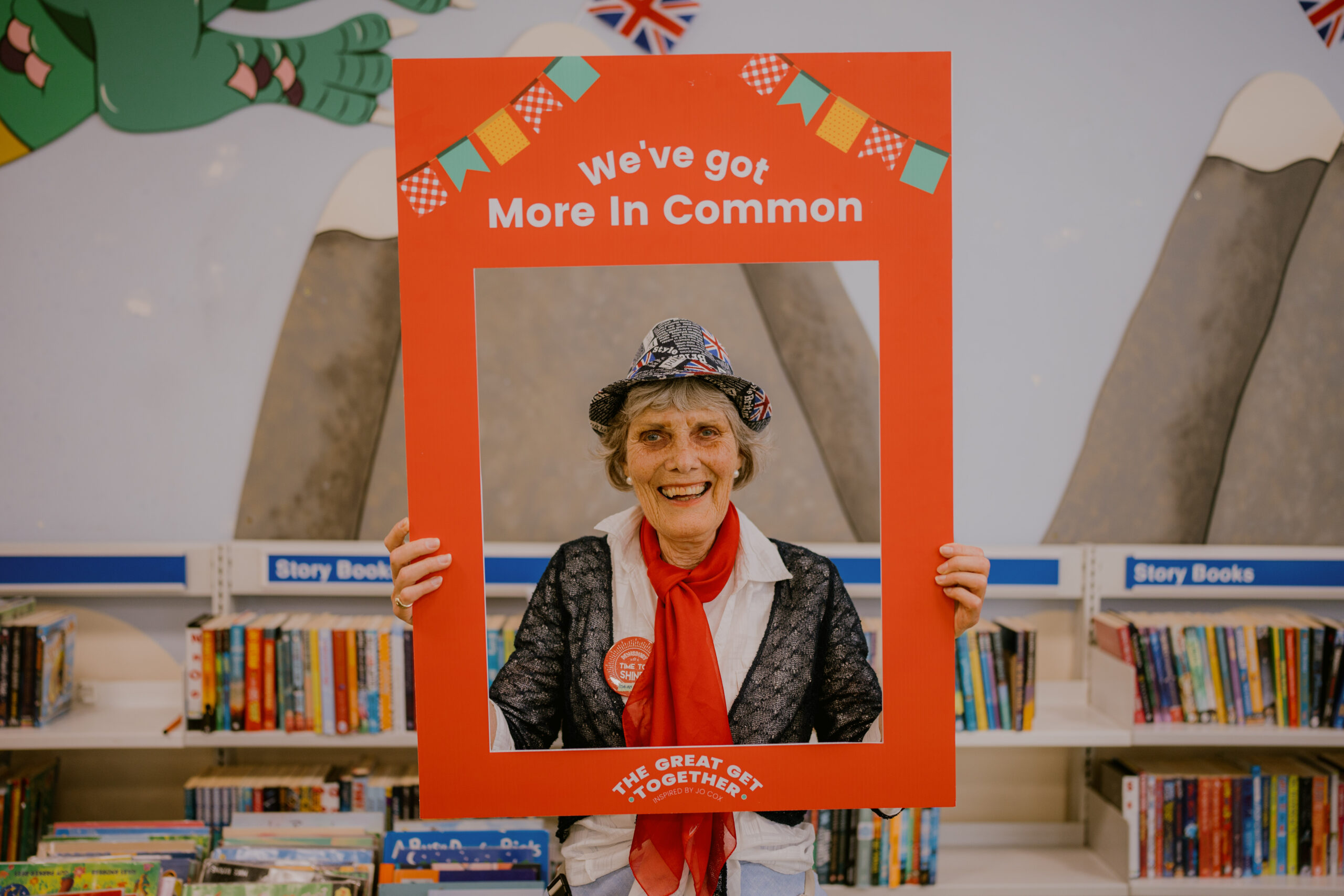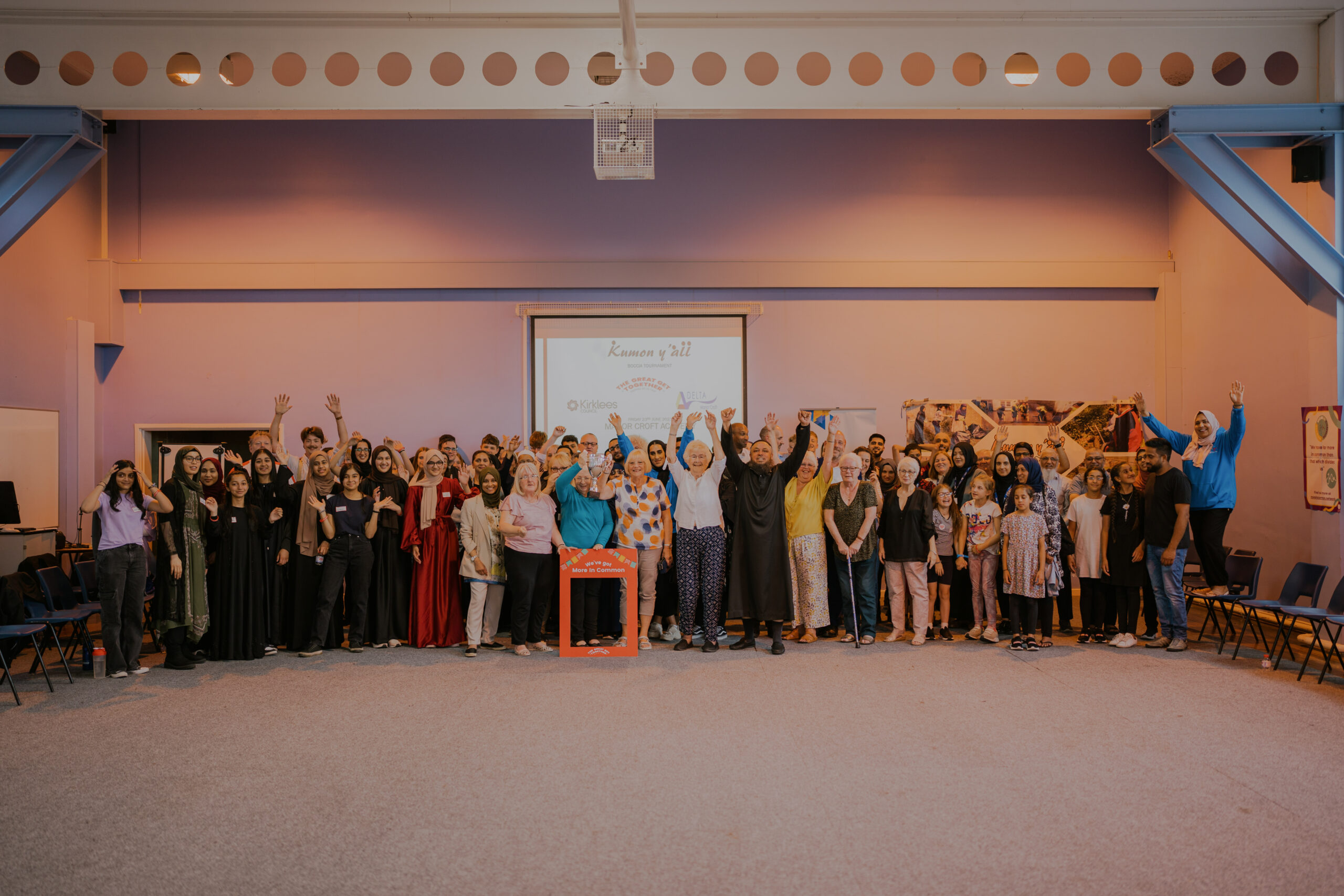
Jo Cox Foundation: Moment To Movement
A project seeking to find out how community events can inspire people to become organisers and improve community wellbeing


With ‘Moment to Movement’, the Jo Cox Foundation aimed to develop their More in Common Network and grow their annual Great Get Together campaign. The Foundation was invested in understanding what motivates event attendees to become event organisers, and how the ‘movement’ of an event can inspire some to become more actively involved with their communities year-round. The project explored the impact that this engagement can have on wellbeing and community connection.
Soon after the grant was awarded and the project began in February 2020, the Covid-19 pandemic had a significant impact on the way that communities were able to connect, which the Jo Cox Foundation has outlined in their report. The report reflects on the evolution of the More in Common partnership model during the final year of the project, and how this has enabled them to scale up their work in Cardiff and Nottingham. The Foundation has since secured funding from the National Lottery Community Fund to continue building on and expanding this model in the UK.
KEY FINDINGS
- Participating in community events and volunteering makes people happier and less lonely.
Across all four years, data strongly supported that participating in organising and attending events increased individual wellbeing. However, surveys found that this was not the case for every organiser, revealing the importance around organisers receiving appropriate support when managing their events.
- Attending and organising community events inspires people to go on and engage more deeply in their local community.
It was found that a higher number of volunteers were returning as organisers in year 4 (85%), than in year 1. (75%) In the final year of the grant, 29% of organisers stated that they had seen an increase in volunteers for other local projects by members of their community right after a Great Get Together, suggesting that this had inspired continued engagement.
- There are barriers to engaging people to both attend events and take on long-term volunteering in their community.
Increasing the diversity of the More in Common groups and Great Get Together organisers has been challenging, however understanding of these barriers has increased throughout the project. Diversifying attendance at events has been far more successful, with partnerships having been valuable. These have included schools and charities such as The Wolfpack Project, UK Youth, Refugee Week and Muslim Hikers.
- Bigger isn’t always better! Smaller events can have a deep impact, and the type of event makes a difference to the experience of participants.
Restrictions on participation numbers during the pandemic demonstrated that even small events have impact, and this encouraged organisers to be innovative in how they think about bringing people together. In the second year of the grant, the Great Get Together campaign was designed to encourage a broader range of events, which would mean a more diverse range of attendees would be catered for. This has included the partnership with Refugee Week for the Great Walk Together and a collaboration with Cinema for All for the Great Watch Together. The report includes several case studies on these events.
- Training and peer networks are important when building long-term sustainability into volunteer projects.
The Jo Cox Foundation began the project with an understanding of the value of a peer support network for event organisers. They focused on developing their training and support networks during the project and found this to be effective in motivating Great Get Together organisers to become involved with the More in Common network. After hosting a Share and Learn session in year 3, 89% of attendees at this session said they were motivated to join or start a More in Common group. 73% of attendees reported an increase in their skill to make positive change in their community.

